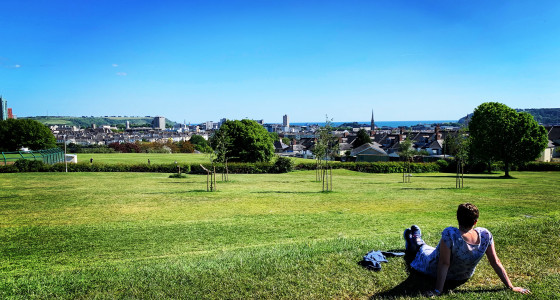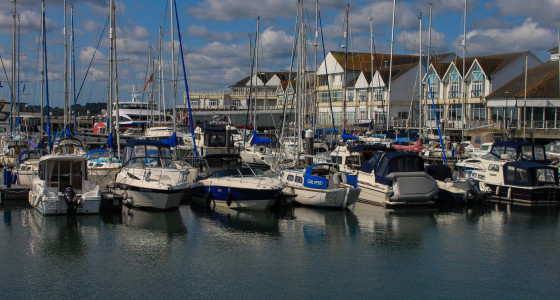
Retirement presents a big opportunity to make a significant change to your life. For some, moving to another part of the country - either for a lifestyle change, or to live somewhere more affordable - is the perfect way to begin their next chapter in life.
If you’re looking to shake things up by moving to a new city or town, here are a few tips to help you on your way.
Did you know? 🤔 The UK is home to more than 12 million people over 65. And it’s a growing group - by 2030 they’re estimated to represent 22% of the population (up from 18% today).
What makes an area good to retire?
House prices
Cities can be expensive, in part because that’s where all the jobs are. But when you’re retired, you don’t need to worry about that - you can live almost anywhere!
Own a home in London? You’ll be spoilt for choice if a move to the south coast sounds appealing. Eastbourne and Bournemouth are just two popular retirement locations to choose from.
Own a home in Edinburgh? You could move a short way inland to the historic and more affordable town of Stirling.
Equally, you could also downsize to a smaller property within the same city or town where you currently live if you find yourself in a home that’s larger than you need.
Did you know? 🤔 Swapping the average three-bedroom London home (£1,128,398) for the equivalent home in Bournemouth (£366,319) would free up a whopping £792,079 to spend in retirement.
Access to healthcare
It’s no secret that our health begins to decline as we get older. Unfortunately, none of us know what or when we might need the services of our NHS. So living near a doctor’s surgery or a hospital may be worth the consideration.
You might never need it, but knowing it’s there might give you the peace of mind and comfort to be more active in your retirement.
Transport links
Many retirees move away from cities to smaller towns where transport networks aren’t usually as widespread or frequent. If you don’t have a car - or don’t see yourself driving into your later years - it’s definitely worth considering whether having easy access to public transport is important to you.
Living on a main line train route might also be important if you plan on travelling longer distances - either to see friends or relatives, or making that occasional trip to the big city to visit a museum or to see a performance.
Local amenities
Living within a few minutes’ walk to local shops or attractions is a valid consideration in retirement. Not only is it incredibly convenient to be able to pop out for that forgotten jar of pasta sauce when you need it, but high streets bring communities together because you’ll inevitably bump into someone you know along the way.
Parks and green space
Going for a gentle walk in nature - or a brisk one, depending on your style - has proven health benefits. Plus, what’s nicer than slowing down to watch the birds and squirrels go about their day?
Parks can also provide a fun and easy way of keeping the grandchildren entertained when they come to visit.
Walkability
Getting out and about and staying active is as important for our mental health as it is for our physical health. It stops us from becoming isolated and sedentary, and opens up a world of opportunity to engage in new hobbies and social activities.
Living in a walkable city where pavements are well looked after, local parks and green spaces are accessible on foot, and local shops are within reach can really make a difference.
Did you know? 🤔 In a 2017 survey of 2,000 people, Living Streets found Edinburgh to be the UK’s most walkable city. Sheffield and London brought in second and third place, respectively.
Safety
Living in a safe community is understandably high up on many people’s lists when considering where to retire. You can find out how safe an area is by checking the UK Police website.
Many places have a neighbourhood watch programme, where communities look out for one another by being alert to threats and reporting any unusual behaviour.
Top places to retire in the UK in 2020
We don’t have data to show exactly where retirees are moving to, but the Office Of National Statistics (ONS) conducted a 2019 survey that showed the percentage of people over 65 by local authority.
UK authorities with highest percentage of over 65s
| Local authority | Percentage |
|---|---|
| North Norfolk | 33% |
| Rother | 32% |
| East Devon | 30% |
| East Lindsey | 30% |
| Tendring | 30% |
| New Forest | 29% |
| Dorset | 29% |
| Arun | 29% |
| South Lakeland | 29% |
| Isle of Wight | 28% |
UK authorities with lowest percentage of over 65s
| Local authority | Percentage |
|---|---|
| Tower Hamlets | 6% |
| Hackney | 8% |
| Newham | 8% |
| Lambeth | 8% |
| Southwark | 9% |
| Islington | 9% |
| Manchester | 9% |
| Barking and Dagenham | 9% |
| Lewisham | 10% |
| Wandsworth | 10% |
But don’t up-sticks for Norfolk just yet! While many retirees might live in those locations, these figures don’t necessarily reflect the quality of life you’ll enjoy retiring there. For that, we have to look at other research.
Combine your old
pensions pots
into one new
online plan
Capital at risk

Best cities to retire
In 2019, research revealed the best places to retire by comparing the house prices, crime rates, local amenities, and other aspects of towns across the UK. Here’s how they fared.

1. Plymouth
With an affordable average house price of just over £170,000, a low crime rate, and plenty of entertainment venues, the traditional south-coast port town of Plymouth came top of the list.

2. Southampton
Second on the list was another south-coast port town, this time situated on the edge of the South Downs. Property might be slightly more expensive in Southampton, averaging £208,000, but it has many more cafes and bars to relax in and enjoy.

3. Nottingham
The highest-ranking inland city is Nottingham. With some of the most affordable housing on the list (averaging £141,412), the city made famous for its tales of Robin Hood also boasts plenty of cafes and bars.
The rest of the best retirement towns
- Cardiff
- Derby
- Liverpool
- Leicester
- Bristol
- Wolverhampton
- Manchester
- Dudley
- Stoke-On-trent
- Glasgow
- Brighton And Hove
- Newcastle Upon Tyne
- Hull
- Edinburgh
- Coventry
- Walsall
- Birmingham
- Sunderland
- Swansea
- Sheffield
- Rotherham
- Bradford
- Leeds
- Wakefield
- Doncaster
- Milton Keynes
- London
Cheapest places to retire
Where is the cheapest place to retire? Every town and city has its expensive areas and affordable areas. So you may find affordable places to retire even in the most unlikely of places.
For example, if you’re set on moving to the warmer climes of the south coast (which tends to be more expensive on average than other popular retirement destinations), you may find a more affordable spot slightly further inland.
Did you know? 🤔 The Sussex seaside town of Bognor Regis enjoyed 1,921 hours of sunshine in 2019. That’s more than any other town in the UK!
Here are a few other things to consider when searching for an affordable place to retire.
Avoid tourist hot-spots
Tourism is a great way of bringing money to our towns, but the increased demand for accommodation and entertainment tends to push up property prices and attract more expensive restaurants and other attractions to the area.
Take Brighton, for example. It’s one of the most popular destinations in the South East, and with an average house price of £363,000 it’s one of the most expensive. But a quick search on Rightmove found several lovely two-bedroom homes for sale in the nearby suburb of Woodingdean for under £300,000.
Avoid commuter towns
You’d be forgiven for expecting that towns surrounding a city would be more affordable locations to settle down into retirement. This is often true, but not always.
Commuter towns are popular with workers who prefer to live in greener and more specious environments, while travelling to work in the city by train. Again, this demand can push up house prices and lead to the introduction of more expensive amenities like restaurants and bars that cater for an affluent working crowd.
Avoid areas around high-performing schools
According to research from mortgage broker Trussle, house prices rise by an average of £180,000 when they’re nearby an ‘outstanding’ school. So if your children are all grown up, and your grandchildren don’t live nearby, consider giving these areas a miss.
Go west (or north)
Typically, it’s the South East where you’ll find the most expensive towns. So head further west to the popular retirement destinations of Devon and Cornwall, or north towards the midlands and Yorkshire, and you’ll be sure to find more affordable places to settle down and enjoy your retirement.










